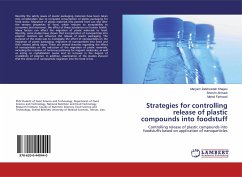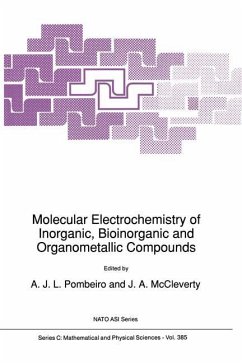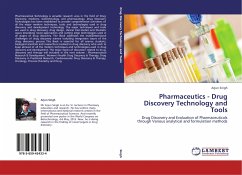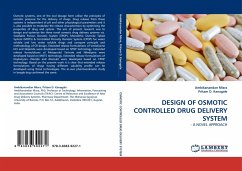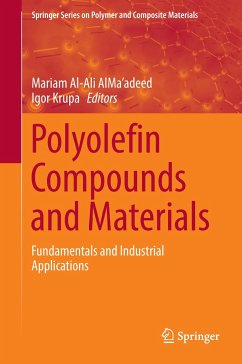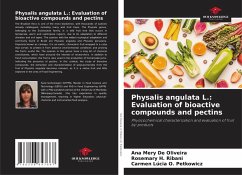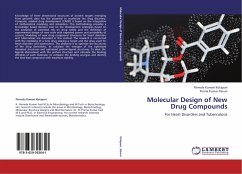
Molecular Design of New Drug Compounds
For Heart Disorders and Tuberculosis
Versandkostenfrei!
Versandfertig in 6-10 Tagen
41,99 €
inkl. MwSt.

PAYBACK Punkte
21 °P sammeln!
Knowledge of three dimensional structures of protein targets emerging from genomic data has the potential to accelerate the drug discovery. Computer assisted drug development (CADD) is based on the integration of mathematical modeling and simulation. This methodology provides a knowledge based decision tool on the development strategies based on the evolution of potential risk on drug safety and the definition of experimental design of new trails with expected power and probability of success. Modeling of new drug compound structures for heart disorders and tuberculosis are discussed in this c...
Knowledge of three dimensional structures of protein targets emerging from genomic data has the potential to accelerate the drug discovery. Computer assisted drug development (CADD) is based on the integration of mathematical modeling and simulation. This methodology provides a knowledge based decision tool on the development strategies based on the evolution of potential risk on drug safety and the definition of experimental design of new trails with expected power and probability of success. Modeling of new drug compound structures for heart disorders and tuberculosis are discussed in this context. The research is concerned with the modeling of a new drug making a target and the drug used for heart disorders and tuberculosis. The objective is to optimize the structures of the drug derivatives, to calculate the energies of the optimized derivated structures and optimized protein-ligand structures. To dock the ligands (derivatives) with the protein structure and calculate the binding affinities of each molecule, to compare the binding energies and identify the best lead compound with maximum stability.



